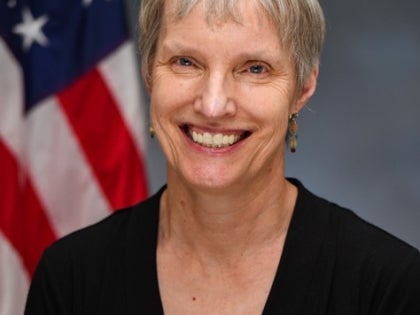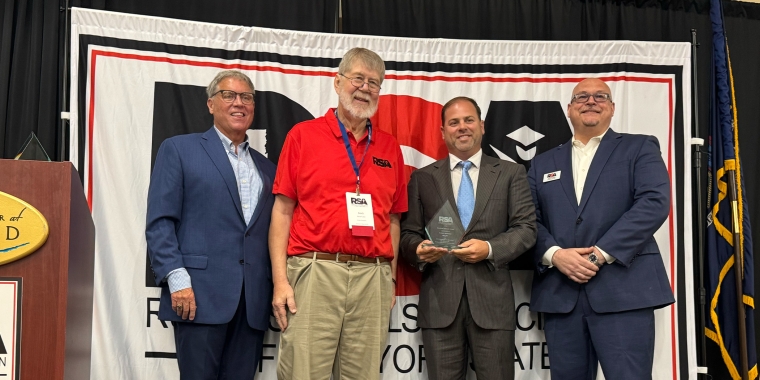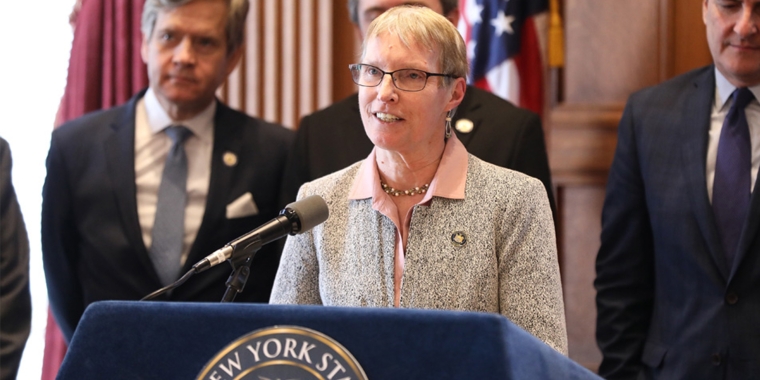
NYS Legislature seizing the initiative to make housing affordable (Guest Opinion by Sen. Rachel May)

We all want strong, safe, healthy communities, which in turn depend on a plentiful supply of affordable housing. When people have to choose between paying the rent and affording other necessities like food, clothing, or medicine, it takes a toll on every other part of their lives. When families must move frequently, when kids are constantly changing schools, when neighbors don’t know each other, that harms educational and employment outcomes, raises stress, and makes violence and crime more likely.
There is an affordable housing crisis throughout New York state. It looks different in New York City, where rents are astronomical, and on Long Island, where there’s very little rental property at all, and Upstate, where rents are relatively lower but housing conditions are often abysmal and incomes are low, as well. While the challenges may differ in various parts of the state, we are all united by the need for safe, affordable housing. Thankfully, we have many statewide solutions that will help both Upstate and Downstate. The governor and legislature must work to enact them this year.
Here in Central New York, urban and rural tenants alike suffer from very high rates of “rent burden,” meaning they pay 30% or more of their income in housing costs. In Syracuse, more than half of renters fall into this category, including many who spend as much as half their income on rent. To make matters worse, some are paying to live in homes without heat or clean water, or that threaten to poison their children with lead, mold or other hazards.
Since the pandemic, our region has seen rents rise as they have elsewhere in the country, while many of our cities have recorded growth for the first census since 1950. In Central New York, we expect Micron’s investments to bring in many new residents. This is a transformational opportunity — but one that will only increase our need for more housing in an already stretched market.
The solutions are in front of us: Give tenants more ways to insure they have adequate living conditions, and build more housing.
Where tenants’ rights are concerned, I am proud that Gov. Kathy Hochul recently signed my bill, the Tenant Dignity and Safe Housing Act, which grants Upstate tenants the right to proactively seek court orders for landlords to fix their homes. Other remedies we need include a statewide right to counsel, so that tenants facing eviction can have legal representation for these tricky and highly consequential proceedings. And making sure landlords respect the need for stability in housing by not evicting people without reasonable cause also should be a priority.
When it comes to building more housing, especially affordable housing, we must tackle long-standing barriers to construction of multifamily units and to creating more dense communities. Some of these barriers trace back to restrictive zoning and other relics of discriminatory housing policy. Some of them stem from reflexive resistance to density and transit-friendly planning on the mistaken assumption that these are inimical to good quality of life. We need policies that recognize that adding housing helps bring down costs for tenants and those looking to buy homes. If we build correctly with smart planning, we can also increase walkability and transit possibilities, while boosting economic development and neighborhood businesses.
This is why I carry a bill modeled on a successful Massachusetts law to allow developers to build more affordable housing in areas that do not currently have an adequate number of affordable units, even if local zoning laws get in the way. Another of my bills would update our environmental review policy to recognize that it is more environmentally beneficial to build infill housing than sprawl developments. I also hope to work on reducing the bureaucracy and expense of rehabilitating historic properties into housing.
Beyond this, we need to fund affordable and supportive housing programs and explore innovative ways of financing and running social housing programs. Sen. Brian Kavanagh’s proposed Housing Access Voucher program is one promising model. Upstate cities like Syracuse need incentives to create more “missing middle” housing, or housing of three to eight units, to increase affordability and density. We should legalize Accessory Dwelling Units, such as in-law apartments, and look for further ways to help accommodate the variety of needs and demands on our existing housing stock.
In sum, more affordable housing and stability for tenants will create more prosperous, environmentally friendly and thriving communities. We must get it done this year.



